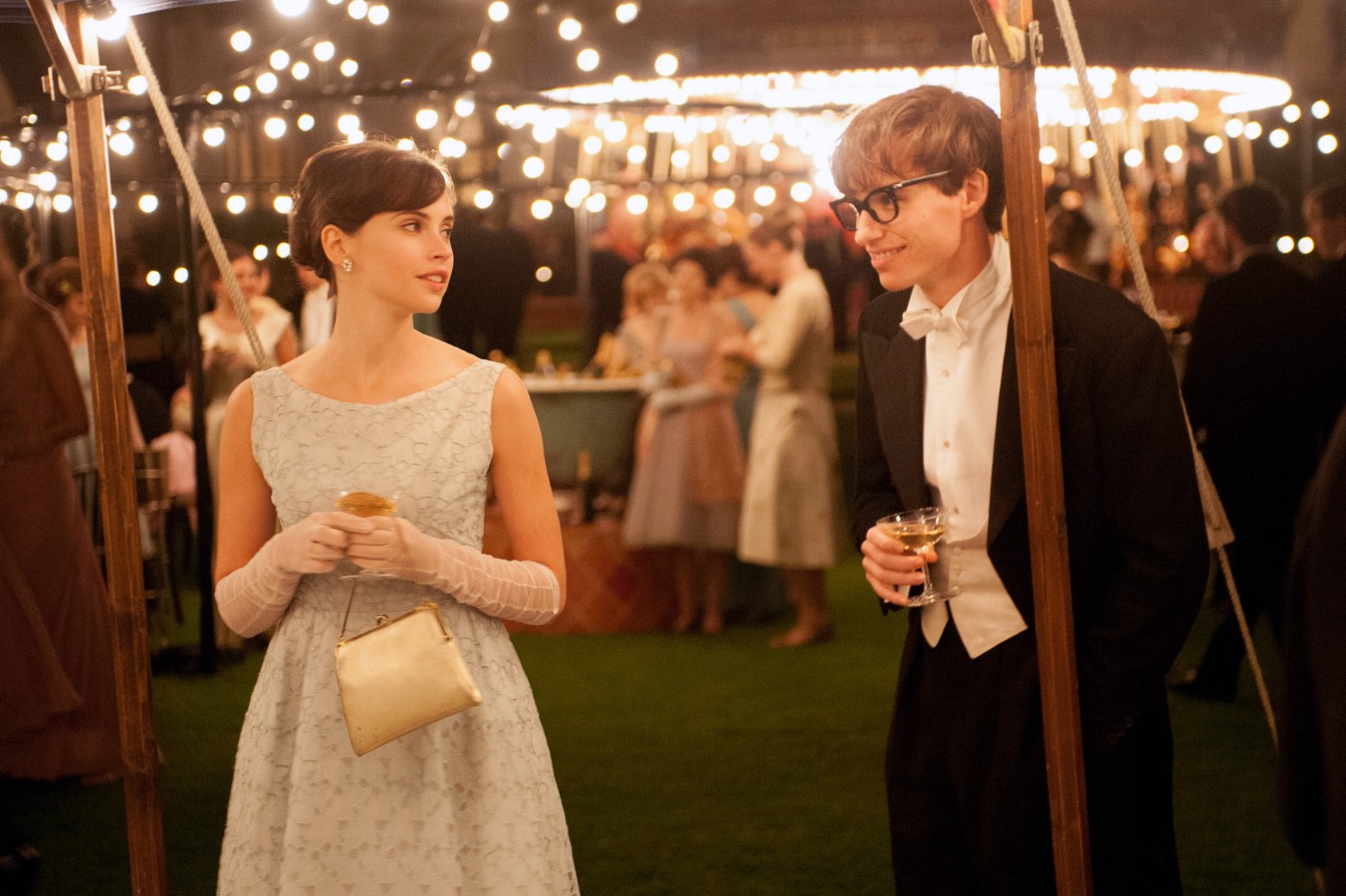The Theory of Everything is both a fascinating biopic of renowned astrophysicist Stephen Hawking and a complex love story told from the perspective of Hawking’s long-suffering wife, Jane, whose memoirs informed this portrait of a marriage that nearly made it through everything, and two remarkable characters who grew to love each other deeply before growing apart.
With standout performances from Eddie Redmayne and Felicity Jones, the movie is, foremost, the tale of a brilliant genius struck down with a crippling disease and a woman who signed up for the long haul, not knowing what was actually in store. As cinema it’s capable though not special; what delivers the material are the indelible performances.
In 1963, Cambridge scholar Stephen Hawking (Redmayne), a socially awkward doctoral student, met his match in Jane Wilde, his polar opposite. Jane, a student of medieval poetry, was everything Hawking wasn’t—earthy, warm and spiritually faithful, where Stephen was a slightly geeky atheist with a handful of half-baked theories about the creation of the universe. But despite their differences, their chemistry was undeniable, and director Marsh shoots their first kiss at the Cambridge ball against a backdrop of blinking lights and fireworks, as if to suggest the birth of their universe, together.
But this bliss is short lived, and after a series of physical tics degenerates into something more serious, doctors inform Stephen that he is suffering from a rare motor neuron affliction, one which will keep his brain functions intact but render them unable to communicate with his muscles. Or anyone else. With a life expectancy of two years, hope seems dim. Undeterred Jane rises to the challenge and to marriage, and despite the physical obstacles they produce three children.
For years, Jane performs the overwhelming task of caring for Stephen and their children while attempting to continue her own studies, but over time this wears thin, and at the request of her mother (Emily Watson), she joins the church choir, introducing a third and important character, a sympathetic musical director played with great warmth by Charlie Cox (Stardust), who also becomes Stephen’s friend while harboring budding feelings for Jane. After an emergency tracheotomy renders Stephen unable to speak, a nurse (Maxine Peake), with her own agenda becomes Jane’s proxy, in more ways than one.
Directed with restraint by Oscar-winning documentarian James Marsh (Man on Wire) from a screenplay by Anthony McCarten and based on Jane Hawking’s book, “Traveling to Infinity: My Life with Stephen,” the picture gives full due to Jane’s story arc, from starry-eyed young woman to disillusioned mother and caretaker.
But it’s Redmayne who gets the showy character in a performance sure to sweep the year-end awards, conveying the incredibly complex emotions and intellect of a man whose body seems to be in decline while his mind becomes sharper, authoring a series of bestsellers and performing lectures to worldwide acclaim.
The sensitive British star, previously seen in My Week with Marilyn and Les Miserables, does an unforgettable job of using limited tools—his eyes, and for a time, voice—to give us a man who is by turns brilliant, angry, loving and resentful, a feat of contortions and vocal modulation than is stunning in how much is said, with so little. It’s hard to say Redmayne isn’t the Oscar frontrunner.
The emotional texture in The Theory of Everything is in the details of a marriage that stagnates, as Jane becomes increasingly exasperated with the degeneration not just of Stephen’s body but of their emotional life, and Jones, a superb actress who has shone so brightly in Like Crazy and The Invisible Woman, invests a depth of feeling to this crossroads, never going for the easy stuff. In two late scenes—one involving a new communication tool, another after a significant revelation—she cuts through director Marsh’s understatement with a vivid melancholy.
Marsh’s handsome yet straightforward directorial approach is a bit questionable for a movie about both groundbreaking theory and a resolutely non-traditional marriage, but it’s a movie that gets its actors, screenplay and emotions just right.
4 stars.



